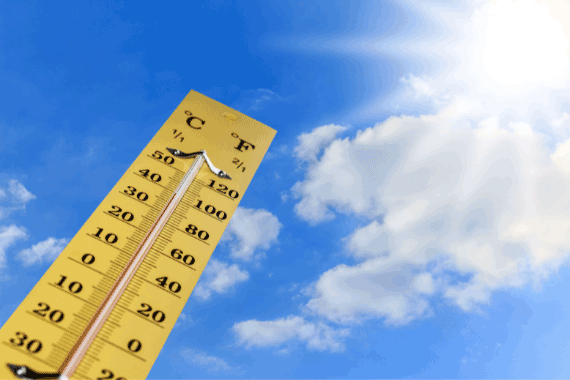Stay Cool! Prevent heat-related illness this summer.
Heat waves are a period of unusually hot weather usually lasting 2 or more days. In Colorado, that means multiple days with temperatures above 90 degrees.
Extreme heat can cause heat-related illnesses (HRI) which may take many forms ranging from fatigue to muscle cramping, to heat stroke. Heat waves are becoming increasingly common, so it’s important to stay cool, stay informed, and take precautions to avoid heat-related illnesses.
National Weather Service Heat Risk Information- click here.
Fast Facts about Heat Safety
- Extreme heat can be dangerous. Heat waves can cause heat-related illness (HRI), such as heat stroke or heat exhaustion.
- Prevent heat-related illness by drinking water often, staying in a cool place with air conditioning, and wearing loose-fitting, light-weight clothing.
- Extreme heat causes the highest number of deaths each year out of all weather-related disasters such as floods, lightning, or tornados.
- Older adults, children, and sick or overweight individuals are at greater risk from extreme heat. Use a buddy system and regularly check in with people who are at higher risk twice a day during a heat wave.
- Pets can also suffer from extreme heat. Make sure pets have cold water and plenty of shade and never leave pets in a parked car.

